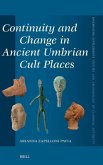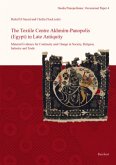A critique of Max Weber's influential ideas about the Mediterranean region in late antiquity, this book shows that the fourth to seventh centuries were in fact a period of major social and economic change, bound up with an expanding circulation of gold.
Agrarian Change in Late Antiquity, the first major study of its kind, presents a critique of Weber's influential ideas about late antiquity. Jairus Banaji collects together a vast range of evidence to show that the fourth to seventh centuries were a period of major social and economic change, bound up with an expanding circulation of gold. The author traces the evolution of a new aristocracy in the eastern Mediterranean, and discusses the implications of its involvement in the monetary and business economy of the period.
Hinweis: Dieser Artikel kann nur an eine deutsche Lieferadresse ausgeliefert werden.
Agrarian Change in Late Antiquity, the first major study of its kind, presents a critique of Weber's influential ideas about late antiquity. Jairus Banaji collects together a vast range of evidence to show that the fourth to seventh centuries were a period of major social and economic change, bound up with an expanding circulation of gold. The author traces the evolution of a new aristocracy in the eastern Mediterranean, and discusses the implications of its involvement in the monetary and business economy of the period.
Hinweis: Dieser Artikel kann nur an eine deutsche Lieferadresse ausgeliefert werden.








